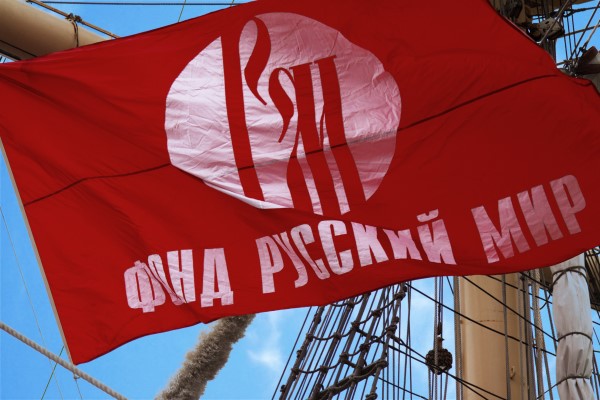As popularly known Russian NGO, Russkiy Mir has been operating abroad. Its primary function is to strengthen Russian language and Russian literature and culture in foreign countries. Within that framework, Asia and Africa are interesting and important for this organization.
By Elena Khmilevskaya and Kester Kenn Klomegah
There are three meanings of this small word “Mir“ which means (Community, Peace and World), and the word inspires and defines Russkiy Mir’s mission – to promote understanding and peace in the world by supporting, enhancing and encouraging the appreciation of Russian language, heritage and culture.
Russkiy Mir promotes the teaching of the Russian language within Russia and abroad – both to new learners of the language and to those who already know and love Russian, and further wish to recapture or maintain their fluency. It brings Russia’s rich history to life, and showcases vibrant examples of Russian art and culture around the world.
The geography is steadily expanding. There are currently 19 Russian Centers (RC) operating in Asia. The details are that there are two centers in Vietnam, seven in China, one in North Korea, one in Macau, two in Mongolia, one in Thailand, three in South Korea, and two in Japan.
Russkiy Mir has 25 offices two in Vietnam, one in Indonesia, four in China, two in North Korea, four in Mongolia, six in Turkey, four in South Korea, one in the Philippines and one in Japan. The Middle East has also two Russian Centers (in Iran and Syria) and additionally, Iran as well as Lebanon have Russkiy Mir Cabinets in operation.
That however, preparations are underway for the opening of a second Russian Center in Iran (University of Isfahan), in Turkey (Istanbul) and in Lebanon (Lebanese State University).
Besides that, there also advanced training courses and seminars for Russian teachers, as well as scientific conferences held in many countries. Furthermore, the works by Russian authors are translated and published as part of the grant program (for example in 2020, a group of scholars from Changchun University translated and published the “Anthology of Silver Age of Russian poetry flash fiction”).
Russkiy Mir Foundation in Africa
Africa is a priority for the Russkiy Mir Foundation. From official reports and documents, there are eight Russkiy Mir Cabinets, as its normally referred to, in Democratic Republic of Congo (DRC), Egypt, Kenya, Madagascar, Nigeria, Republic of Congo and South Arica.
The Russian Center was opened in Tanzania (The University of Dodoma). Preparations are underway for the opening of Russian Centers in Algeria, Egypt (Ain Shams University in Cairo), in Senegal (Cheikh Anta Diop University in Dakar), Russian World Offices in Guinea-Bissau (Pushkin Center for the Study of the Russian Language in Bissau), in the Republic of Côte d’Ivoire (The University of Abidjan), as well as the “Russian corner” at the National Library of Madagascar.
Representatives of African countries participate in the fund’s grant program, but thus far, relatively few applications have been received from this region. We strongly encourage representatives of the African continent to participate more actively in the grant program of the foundation and hope for the media’s assistance in spreading information about the program.
The Foundation also maintains contacts with educational institutions and organizations of compatriots from Ethiopia, Uganda, Senegal, Cameroon, South Africa and other African countries, provides information and methodological support and assists in hosting Russian language courses.
General information
Today, there are 117 Russian Centers in 53 countries of the world. The events of 2020 – the pandemic and the related changes in people’s social lives: quarantine, remote work and study – could not but affected Russkiy Mir Foundation’s activities. Despite all the surprises of 2020, the Foundation has never stopped its work of promoting and strengthening the position of the Russian language and culture in the world.
Russkiy Mir Foundation implemented several major international cultural and educational projects in 2020 in order to promote the Russian language and culture:
- International creativity competition or contest “Pushkin worldwide”
- International competition of performers of Russian romance songs “Romanciada” which in some countries had to be held in a remote format
- IV International Competition of Young Journalists “Co-Creation”
- International competition “Correspondent of the Russian World”
- The TV quiz “Pushkin: Do you know Our Everything?”
Representatives of Asian and African countries also took part in these competitions. The program “Professor of the Russian World” is actively developing. The Foundation has implemented and still is implementing a whole series of educational programs (mostly in distant learning mode) for students and teachers of foreign universities, colleges and schools with the support of leading Russian universities.
Great emphasis is placed on distributing information of the Foundation’s activities in support and promotion of the Russian language abroad. The Foundation has its own website: russkiymir.ru (the portal’s traffic amounted to more than 1.5 million unique users from 190 countries for the first nine months of 2020) as well as a television and radio broadcasting under the title “Russkiy Mir” for the Foundation.
The Foundation publishes an illustrated electronic magazine monthly. Russkiy Mir Foundation is ready to support interested institutions in promoting the Russian language, literature and culture as part of Russia’s Soft Power Diplomacy.
In June 2007, President Vladimir Putin signed a decree establishing the Russkiy Mir Foundation, which is a joint project of the Ministry of Foreign Affairs and the Ministry of Higher Education and Science.
*Elena Khmilevskaya is a Coordinator for Asian and African Programs at the Russkiy Mir Foundation and Kester Kenn Klomegah is an expert on Russia-Africa policy.
Category: 10
Exclude ID: 1367761






